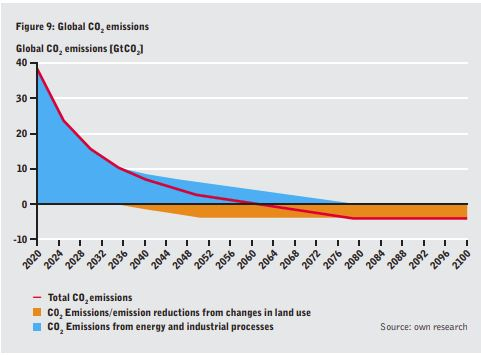
Economists and politicians lean heavily on the promise of "green growth" as a last-ditch defense of capitalism. But is green growth possible? This year brought a lot of new research to bear on this question. Here's a summary:
1. In this 2020 NPE review, we found that it is not feasible to reduce emissions fast enough stay under 1.5C while growing the global economy at the same time. Why? Because growth requires more energy use, which makes decarbonization much more difficult. tandfonline.com/doi/abs/10.108…
2. To be clear: absolute decoupling of GDP from emissions is possible (renewables!), and some nations are already doing it. The question is whether we can do it fast enough to remain within safe carbon budgets, while pursuing growth at the same time. And the answer to that is no.
3. As for resource use, we find that any absolute decoupling of GDP from resource use is unlikely to be achieved, even under highly optimistic assumptions. Why? Because of rebound effects and physical limits to material efficiency. Here's a free PDF: jasonhickel.org/s/Hickel-and-K…
4. There's more. This 2020 review examines 835 empirical studies and comes to similar conclusions: decoupling alone is not adequate to achieve climate targets, and is not adequate to reduce resource use in absolute terms. iopscience.iop.org/article/10.108…
5. Finally, this 2020 review looks at 179 studies on decoupling published since 1990 and finds “no evidence of national or international absolute resource decoupling, and no evidence of the kind of decoupling needed for ecological sustainability.” sciencedirect.com/science/articl…
In other words, "green growth" is not a thing. If we want to reverse ecological breakdown, we need to be smarter than this. High-income nations need to actively scale down resource and energy use, and organize the economy around well-being rather than around perpetual expansion.
The good news is that we can do this while ending poverty and ensuring decent lives for all. This 2020 article in Global Environmental Change crunches the data: sciencedirect.com/science/articl…
How do we get there? I lay out concrete policy pathways in Chapter 5: jasonhickel.org/less-is-more
• • •
Missing some Tweet in this thread? You can try to
force a refresh



